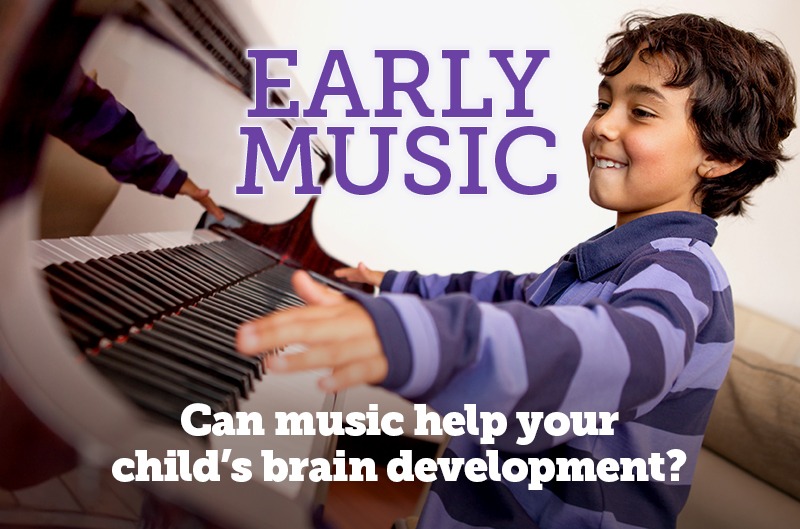
Music is weaved into the fabric of our lives. It serves as a static soundtrack for supermarket trips and elevator rides; it can accompany us on long trips and help us focus at work. However we hear it and however we use it, music inspires relaxation, joy, and memories.
And it may even inspire brain development.
Did you know that cellist Yo-Yo Ma, pianist Oscar Peterson, and many other skilled musicians began their music training before the age of 7? A recent study suggests early music training may have a greater effect on brain structure than having the same training later in life, according to Science Daily.
The study tested 36 highly trained musicians who were divided into two groups – those who began their training before age 7 and those who trained after, with both groups having the same years of training and experience.
The study compared white matter organization using imaging and found that musicians who trained early had greater white matter connectivity. This white matter can produce long-lasting changes in behavior and the brain.
“There’s a great deal of evidence that exposing children to music at an early age helps brain development,” says Dr. Pierre Loredo, a pediatrician with Lee Physician Group. “Whether it’s musical training to enhance a child's linguistic skill at a later age, or improving the development of a child’s phoneme processing and vocabulary skills at a younger age, research studies suggest music promotes development and positive outcomes.”
Music: Soothing pain and treating Alzheimer’s
Dr. Loredo says the study should encourage people to expand their concept of wellness and consider adding music training to the early stages of their children’s lives as well as their own in later life. Doing so could potentially prevent and mitigate neurological diseases.
Music therapy is being investigated to help treat Alzheimer’s patients and some studies have suggested it can help individuals with chronic pain.
To foster your children’s interest in music, the American Academy of Pediatrics suggests:
- Putting a small stereo or boom box and a rotating collection of CDs in your child’s room.
- Using a musical alarm clock or clock radio to help your child wake up. Many stereos have timers that let kids drift off to music, too. And certain songs can serve as cues for your child (for instance, one song you always play or sing in the morning when it’s time to get ready for school).
- Sampling audio discs from your local library. You can try different artists and styles without spending money.
- Introducing kids to songs from your own childhood or share music you love.
- Singing with your kids in the car.
- Making musical instruments available in your child’s play area.
- Listening to music while cooking and cleaning.
- Listening to music as a family activity.
- Letting your kids use music-making computer software programs to lay down their own tracks, just like a professional.
- Forming your own family band with real or improvised instruments (spoons, makeshift drums, etc.). Also, this is a good group activity for kids to try with friends.
Golisano Children's Hospital of Southwest Florida uses the healing powers of music for children undergoing various treatments. To learn more about how you can support this great initiative visit our Music Therapy page.
If you would to contribute to Healthy News, please contact us at Social@LeeHealth.org

